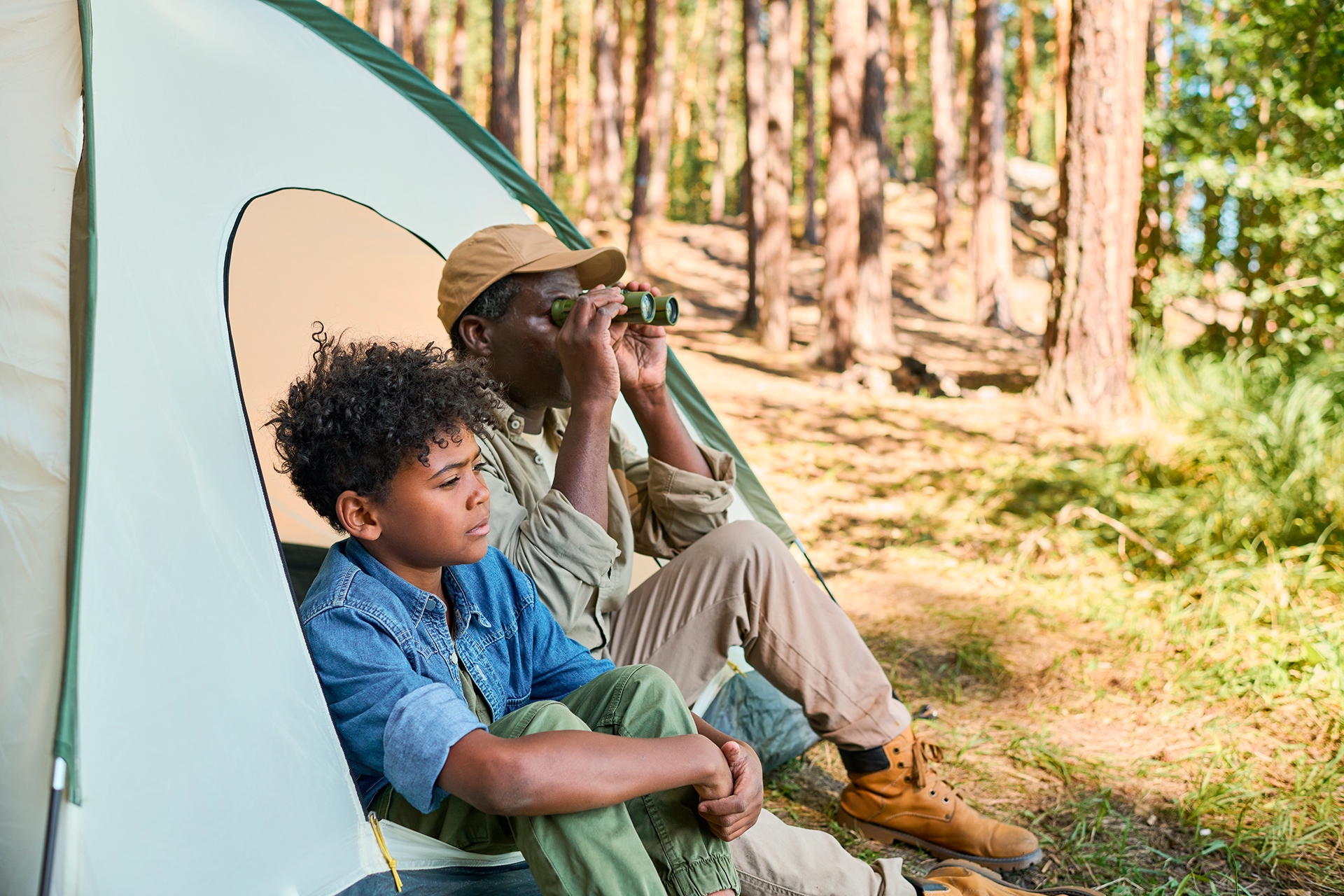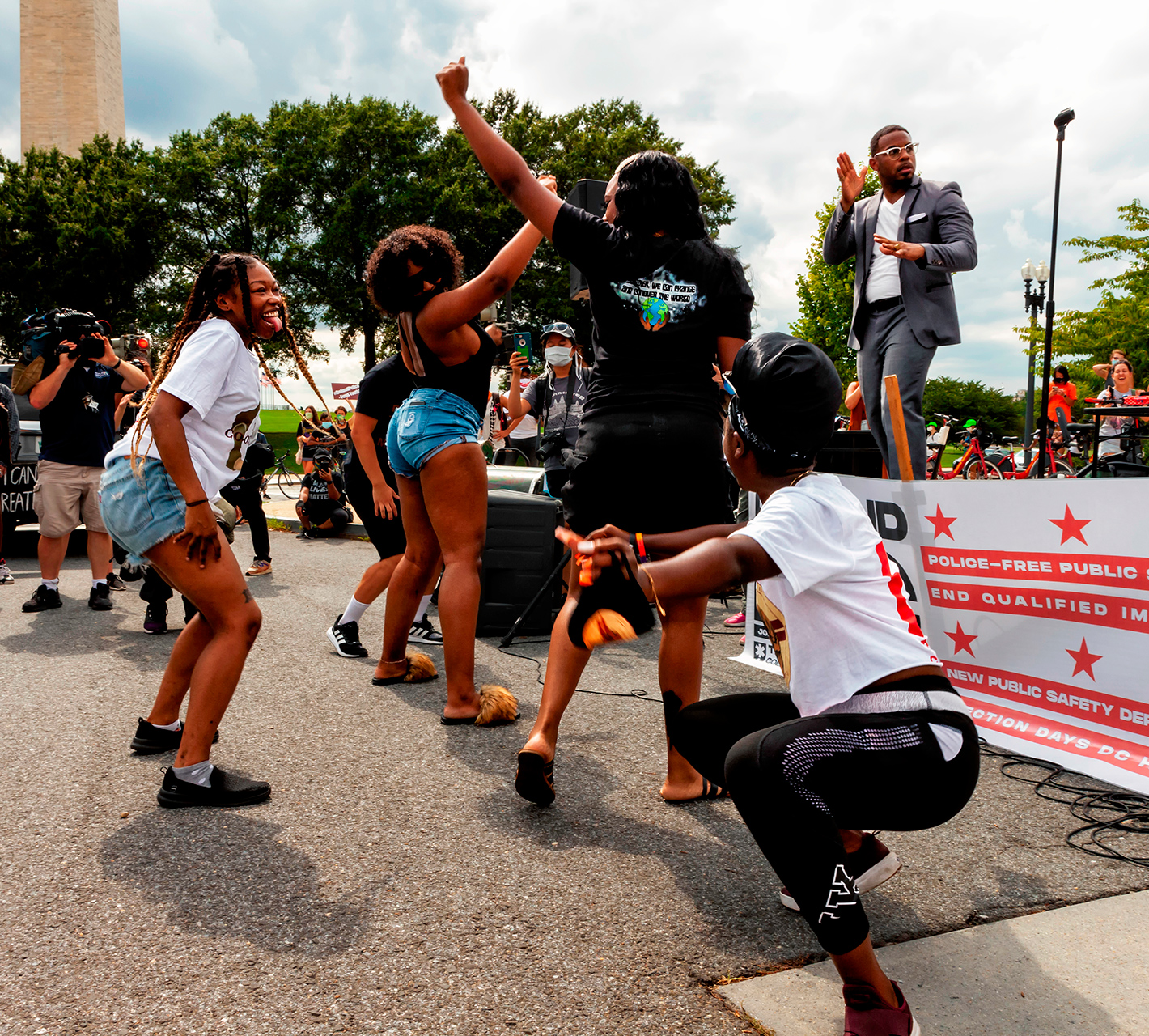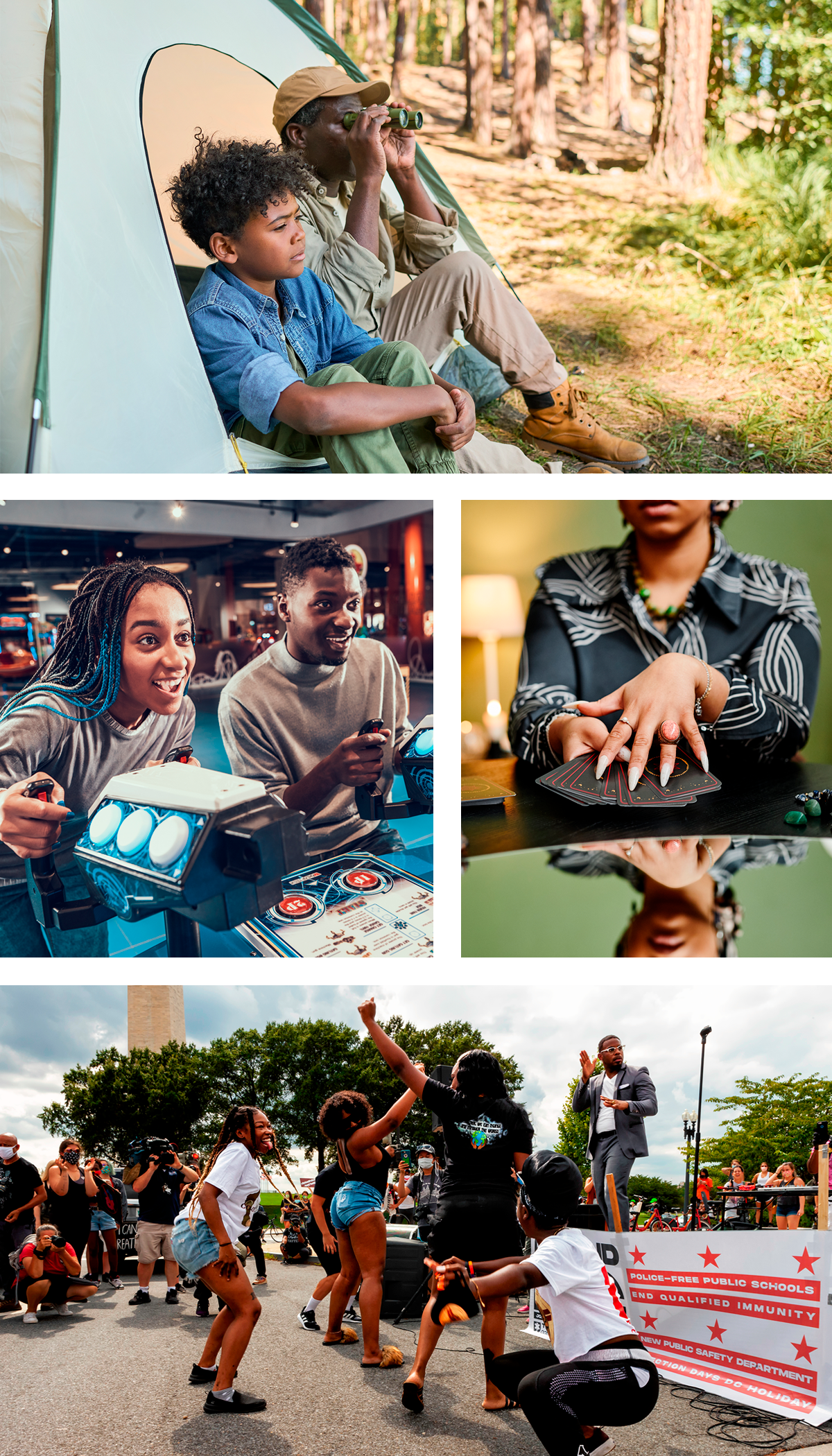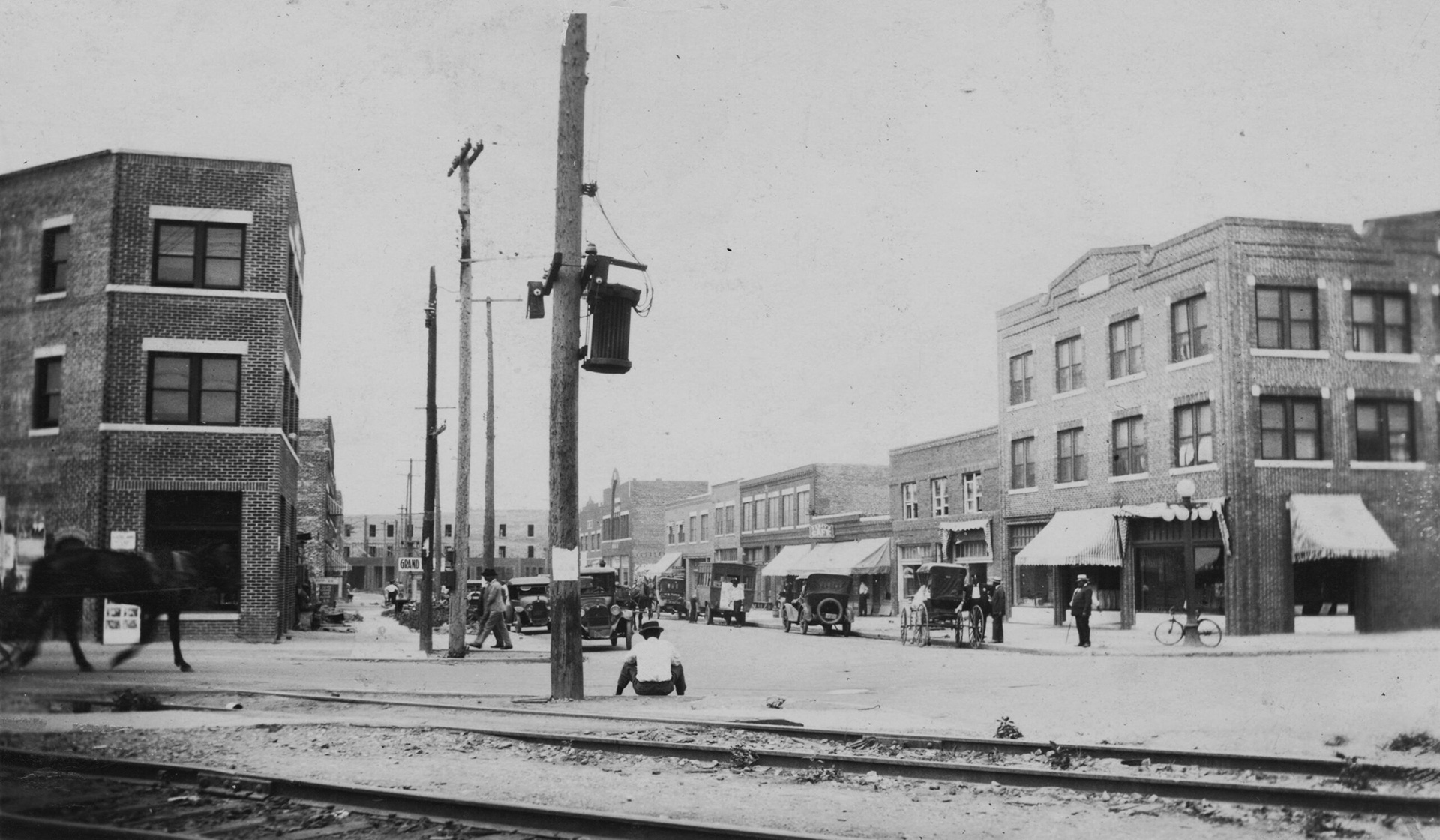DREAMING
OUT LOUD
A mini-series exploring Black fugitivity & how Black folks are conjuring up spaces where Black lives thrive
By Brittiny Moore
This series is the culmination of the inaugural Bioneers Young Leaders Fellowship Program. For two decades, the Bioneers Youth Leadership Program has served as an incubator for many thousands of youth to deepen their passion and power through self-expression, skills development, mentorship and deep relationship building within the broader community of Bioneers. The Bioneers Young Leaders Fellowship Program provides the opportunity for a young leader to pursue a project of their choice, supported by resources and mentorship, with the ultimate goal of producing a polished and vibrant final piece of work to be published on Bioneers.org and beyond. The following is the result of the first round of this fellowship program written and researched by Brittiny Moore, the inaugural Bioneers Young Leaders Fellow.
Dreaming Out Loud is a short series that explores stories of Black fugitivity, creative resistance and how Black expressions and imaginations have offered a blueprint in creating a world in which Black folks are afforded the love and care to relish in the rich, vibrant depths of their Blackness. Looking to the past, the present and the future, Dreaming Out Loud engages with pivotal moments and transformative figures in Black culture. Against the backdrop of a country that does not offer certain folks humanizing love, these stories traverse the beauty of Black minds as they dare to dream out loud and resist domination for a future that contains radical possibility.
The series features Black space creators who know what it means to become fugitive and resist white, colonial supremacy by carving spaces in which Black folks may find refuge from the harsh realities of a country that refuses to allow Black life to thrive. It is undeniable that for Black folks to embody a future of possibility, they must be able to exist within spaces that are unburdened by the racialized violence and terror that persists today.

Dreaming Out Loud is authored by Brittiny Moore, a Bioneers Young Leaders Fellow. She is a writer, researcher, and intersectional environmentalist who is passionate about environmental justice, Black agency in environmental spaces, and storytelling for racial and social justice.
With several years experience as a community organizer, Brittiny has worked with activist groups including the Black Lives Matter Movement, the Kentucky Fairness Campaign, and Communities of Color United. Motivated by community and the imagination, she seeks to combine her unique knowledge and skill set to mobilize the literary arts to advance Black liberation and to celebrate Black life.



”
When you have these fugitive spaces, particularly Black fugitive spaces, they are counter to racial capitalist logic, to settler colonial logic, and all these things that tell us to not — that tell people not to work together. In a way, [those spaces] foundationally and slowly disrupt those systems. Black fugitive spaces are a disturbance — a way to cultivate and sustain a counter power to this larger weight that is working to oppress folks.
DR. JUSTIN COLES

To understand fugitive space, it is crucial to explore the historical roots of the term “fugitive” — which is rooted in chattel and plantation-style slavery. When enslaved Africans escaped from the plantations that shackled them, they were cast as fugitives of the system — criminals of the plantation economy, soon to be known as capitalism. They were considered property, which meant they were considered simultaneously thieves as well as the stolen goods.
Today, “fugitive” is utilized in the same sense — to describe a journey toward freedom. In a society infested by anti-Black racism and white supremacy, this freedom is only achievable when we actively participate in acts of escape. We can undermine these oppressive systems when we fearlessly seek love, joy and rest in spite of them — when we seek creative methods of refusal and resistance.
This piece introduces and explores examples of Black fugitive spaces. They exist everywhere, all around us. They exist in every setting, every experience and every thought that allows us to relish, unapologetically, in the Blackness of our minds, our bodies and our souls. Every community standing in solidarity, every dap given, every act of self-care. The blossoms of Black liberation are rooted throughout the nation.
Black fugitivity and the need for spaces that belong to Black communities
Black folks are taking up space and paving their own paths toward self-determination to subvert a society built on racialized violence.
”
It should be around every turn that there are these liberated spaces where folks can have access to food, clean air, clean water, the dancing, the drumming, the ceremony, the natural resources that allow us to experience and tap into that feeling of freedom and liberation, which really is a birthright for all people
LEAH PENNIMAN

While the trauma of almost 500 years of racialized violence and being shackled on plantations is poignant and visceral, it has also severed a sacred bond between Black folks and the land that has sustained our communities for countless generations. It has pitted the land as the oppressor.
However, throughout centuries of suppression of Black liberation, Black folks continued to desire to be culturally reconnected to the land, to grow culturally nutritious foods and own property as a means to build wealth and uplift their communities.
Black farmers have always been innovators and pioneers of organic and sustainable farming and community-supported agriculture. Their methods and systems ask us to think holistically about food, beyond the fetishization of a food system as a linear supply chain. Black food spaces and Black ways of living in opulent harmony with the land expose food as a system connected through myriad intimate relationships between people and land who grow with, exchange with and nurture with one another.
In this piece, learn how Black farmers are now returning to their agricultural roots.
Fight against food apartheid requires creating spaces for Black food and farming to thrive
In a country with a violent history of food injustice in Black communities, Black food leaders are emerging to create spaces for healing.
”
In this country or just generally, Black women are not privileged to have someone caring for them. Birth work is a way that we can show up and care for each other in deeply intimate ways. Watching each other care for each other, and love on each other in a world that doesn’t love on us is so bright and healing. It’s like it feels like sunshine in the most corny way.
NIRIA WHITE

In the United States, Black women and birthing people are consistently at the mercy of a system of care dominated by white, male medical practitioners and wrought with sinister and life-threatening failures. The result is a public health crisis plaguing the lives of Black birthing people, who suffer staggeringly worse maternal health outcomes.
The practices of midwifery and doulaship create Black birthing spaces that challenge the racialization and overmedicalization of birth with an emphasis on community-based care, intimate relationship building, prenatal and postpartum wellness and avoiding unnecessary interventions that can, and often do, spiral into dangerous birthing complications.
Yet today in the U.S., only 6% of midwives are Black and 16% of doulas are women of color.
The U.S. has a long history of the erasure and theft of ancestral practices that have proven to save Black lives. Black women’s bodily autonomy and health have been consistently attacked. Real, lasting change will require us to examine every part of our societal processes that are steeped in anti-Black racism — that are permeated with racial violence — and to deconstruct our sexist and dehumanizing understandings of Black women’s bodies.
Black reproductive justice: Black birthing spaces and support could be the key to maternal health
The African ancestry of birth work is saving countless lives in a society where Black birthing parents and their babies are dying at an alarming rate.
”
I want to leave behind work that illustrates a sense of possibility and abundance for Black lived experiences that doesn’t feel constrictive, that feels it’s opening things up, hopefully, that’s charting history, that’s invoking the ancestors. The collective spirit of my ancestors from Haiti who fought for their own freedom and really scared the entire world as to what Black agency could look like – I want to honor that spirit.
EVAN NARCISSE

Creating spaces where Black creativity and Black art are allowed to flourish can be daunting, but it is a key act of resistance. These Black creative spaces are settings and experiences that embody Black expressions and imaginations. They offer Black folks support to dream their wildest dreams out loud, unencumbered by the white gaze. They allow both artists and the beholder to relish in the rich depths of their Blackness.
This “Black Creativity” collection explores transformative figures in Black art and creative culture. These creatives know what it’s like to challenge the status quo, dream up possibility and tell the stories of the beauty of their Blackness.
How Black Creative Spaces Can Be Havens for Resistance
Against the backdrop of a society that does not offer Black folks humanizing care, Black creative minds dare to dream out loud for a future that contains radical possibility.